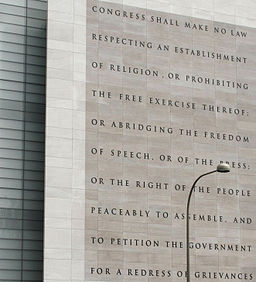
Legal analysis is certainly not something that comes to mind when planning a vacation. However, with the increasing popularity of finding accommodations via an online service called Airbnb, you might need to hire a lawyer before booking a place to stay or, more importantly, deciding to rent that spare room in your home to an overseas vacationer.
Airbnb operates a website that allows people to find hosts in cities in close to 200 countries around the world. It is one of the growing number of companies active in what many refer to as today’s “sharing economy,” which involves “cloud-based platforms that establish a market between individuals” according to Freakonomics co-author Stephen J. Dubner. Instead of booking a hotel room in a new or unfamiliar neighborhood, travelers use Airbnb to help connect them to potential hosts in their desired area, in whose home or rental property they can stay—usually at a rate far less than what a mainstream hotel costs.
This may seem like a win-win situation. Visitors keep their travel expenditures down and hosts have an income stream to help cover their own expenses. However, there are a number of considerations that could spell trouble for either or both of the parties. In a typical hotel environment, for example, building codes dictate that the facility adhere to certain safety standards in terms of fire exits, informative signage, emergency-lit pathways, and the like. The rationale is that transient guests are not familiar with their surroundings and need clear and immediately understandable instructions in case of emergency. Joe Neighbor’s residential apartment on East 8th Street does not offer the same safeguards to the short-term guests passing through his doors. This could pose a significant safety hazard in the event of an emergency. The liability for injury or death may lie squarely on the owner of the dwelling in such a scenario.
Which brings us to another potential issue that may arise with this hosting model: Tenants who decide to list “their” apartments (or rooms therein) on Airbnb, without express permission from their landlords (a.k.a. the actual owners of the residence). Depending upon the language in the lease, as well as any state regulations in effect, operating an ad hoc bed-and-breakfast may violate the lease, put one at risk of eviction, and/or incur significant fines (even if the host is the actual property owner). Many states, including New York, have an “illegal hotel law” which, among other things, prohibits residents from accepting payment for houseguests who stay for fewer than 30 days, especially if the host is not present during their stay. See New York State Multiple Dwelling Law § 4(8)(a). Additionally, New York City imposes a 5.875 percent occupancy tax on hotel and other short-term room rentals. To resolve the tax issue, Airbnb has been rolling out official automatic collection of a Transient Occupancy Tax, or “hotel tax,” in some of its service areas.
Before listing as a host on Airbnb, individuals should do their due diligence not only on their guest but to ascertain that their plans will not constitute a violation of their lease or of their location’s building safety and tax laws—laws which are now being revisited because of how widespread the service has become.
Airbnb operates a website that allows people to find hosts in cities in close to 200 countries around the world. It is one of the growing number of companies active in what many refer to as today’s “sharing economy,” which involves “cloud-based platforms that establish a market between individuals” according to Freakonomics co-author Stephen J. Dubner. Instead of booking a hotel room in a new or unfamiliar neighborhood, travelers use Airbnb to help connect them to potential hosts in their desired area, in whose home or rental property they can stay—usually at a rate far less than what a mainstream hotel costs.
This may seem like a win-win situation. Visitors keep their travel expenditures down and hosts have an income stream to help cover their own expenses. However, there are a number of considerations that could spell trouble for either or both of the parties. In a typical hotel environment, for example, building codes dictate that the facility adhere to certain safety standards in terms of fire exits, informative signage, emergency-lit pathways, and the like. The rationale is that transient guests are not familiar with their surroundings and need clear and immediately understandable instructions in case of emergency. Joe Neighbor’s residential apartment on East 8th Street does not offer the same safeguards to the short-term guests passing through his doors. This could pose a significant safety hazard in the event of an emergency. The liability for injury or death may lie squarely on the owner of the dwelling in such a scenario.
Which brings us to another potential issue that may arise with this hosting model: Tenants who decide to list “their” apartments (or rooms therein) on Airbnb, without express permission from their landlords (a.k.a. the actual owners of the residence). Depending upon the language in the lease, as well as any state regulations in effect, operating an ad hoc bed-and-breakfast may violate the lease, put one at risk of eviction, and/or incur significant fines (even if the host is the actual property owner). Many states, including New York, have an “illegal hotel law” which, among other things, prohibits residents from accepting payment for houseguests who stay for fewer than 30 days, especially if the host is not present during their stay. See New York State Multiple Dwelling Law § 4(8)(a). Additionally, New York City imposes a 5.875 percent occupancy tax on hotel and other short-term room rentals. To resolve the tax issue, Airbnb has been rolling out official automatic collection of a Transient Occupancy Tax, or “hotel tax,” in some of its service areas.
Before listing as a host on Airbnb, individuals should do their due diligence not only on their guest but to ascertain that their plans will not constitute a violation of their lease or of their location’s building safety and tax laws—laws which are now being revisited because of how widespread the service has become.




